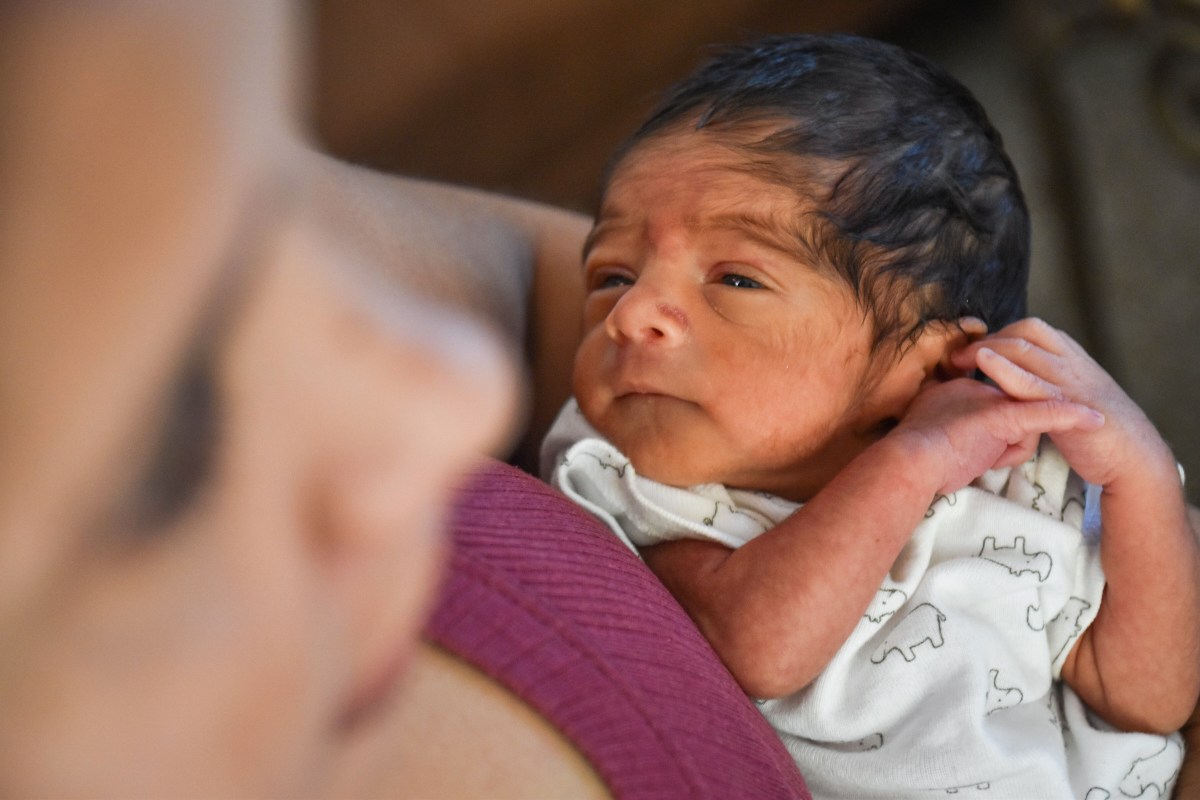Welcoming our Newest Friend
The birth of a baby in Venezuela is a blessing surrounded by thorns. The nation’s hospitals do not have the supplies needed to care for a woman in labor. Each citizen must buy everything necessary to be treated in public medical centers, which range from a simple square of gauze to a bottle of rubbing alcohol.
S. experienced this situation firsthand when her son D. was born prematurely, at seven months. “They even asked me for the medical staff’s gowns…they didn’t even have a stretcher in good condition to attend to me. It was a long night—I was very distressed,” she said.
R., the new dad, fought until the last minute to ensure that his son was born in a decent hospital, but he did not achieve his goal. A hospital birth in Venezuela costs between $1,000 and $1,5000—around 20-30x the average worker’s monthly salary. “I did what was in my hands, but it is impossible to pay for it with my salary. We tried, but we couldn’t. We ended up in a horrible public hospital where they barely treated my wife,” he said.
Now the proud parents gaze at their beautiful baby, with brown skin and sleepy eyes. D. came into the world weighing only 3 1/2 pounds and measuring 16” long. “My baby was born during a difficult night, a night that reminded me of the massive crisis we are experiencing in this country”, Sofia said as she stared at her baby.
Crisis of Care
The most recent National Hospital Survey (2018) carried out in 104 hospitals and 33 private clinics shows shortages of 88% for medications, 79% for medical-surgical materials, and 84% for catheters and probes. Hospitals in the state of Zulia are in absolute ruin. “Going to the hospital is like going to hell,” says a patient who must undergo dialysis treatment every day. He knows from experience—that he must bring all the supplies for the dialysis, and a relative has to carry him to the doctor’s office because the hospital elevators are out of service.
Our medical team went to S’s house to examine baby D., who showed symptoms of a health condition that required care. The pediatrician determined that the newborn needed food supplements. “The mother was advised to provide breastfeeding on demand, and also a starter formula. Two ounces every two hours; the objective is to promote weight gain,” she explained. This family received the needed nutritional supplement so the baby can grow healthy and strong. Medicines were also given to S., so that she can recover and breastfeed without any inconvenience.
The family thanked Preemptive Love for such great help. “We were worried about the state of the baby and you came like angels from heaven. My wife and I are very grateful. The cost of this milk is too high, your help is like a miracle for us,” said R.
A Medical Team that Cares
Mobile Medical Services continue to be our largest program in Venezuela. Three times a week medical services are offered in six vulnerable communities; residents can get their symptoms diagnosed, and receive medication according to their illnesses.
Currently, our medical team is made up of two general practitioners, a pediatrician, a nurse, a logistics coordinator, a pharmacist, and a pharmacy assistant.
During the last three months of 2021 alone we were able to serve 1,787 of our most vulnerable Venezuelan friends. By year’s end, had we served 4,408 patients since the program began in May 2021.
[In the months ahead, we’ll bring you more stories of the community from the field, including from patients, health care staff, and Preemptive Love field officers.]


